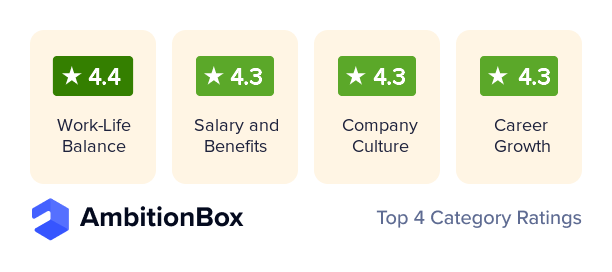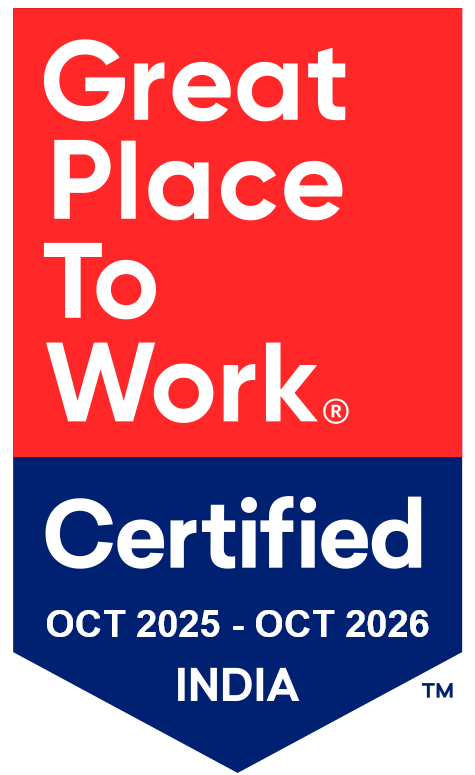The COVID-19 pandemic has disrupted the global recruitment and staffing industry. Companies are no longer calling candidates to come for in-person interviews, preferring to conduct interviews using virtual means such as video calling or live sessions instead. Technology companies have taken the current crisis seriously and have displayed utmost concern for their employees. Companies have started to prepare for a post-COVID world where social distancing will hold sway for some time to come. Companies are exercising caution when it comes to recruiting; many are requesting candidates’ travel history (both personal and official itinerary, if any) made in the past three months and are also getting medical checks done on selected candidates to rule out the possibility of infections related to COVID-19 or other contagious diseases.
While some companies have frozen their hiring plans in the short run, there are others that are still recruiting candidates for crucial roles. Companies are making sure that the critical functions of their business do not not get affected, and are hiring for important roles. Candidates selected for these roles are being interviewed and on–boarded virtually via video conferences and other virtual office productivity applications. Virtual hackathons are on the rise where team members are discussing projects with the new employees and what should be the further course of action for the project.
Industries such as travel & transportation, hospitality and related industries are in crisis and are among the most impacted due to the COVID-19 pandemic. In recent weeks, only two companies- Bolt and Cruise from the travel industry, are hiring candidates, while many other booking platforms/ aggregators such as Kayak, Expedia, and Booking.com have halted hiring. Some of the travel industry companies like Bird, Expedia, Sonder, Mondee, and Knotel have announced employee layoffs across levels and functions, which also include different tech roles. Even the Aviation, Catering, Hotel, and Restaurant Industries have witnessed a steep decline in job openings due to the COVID-19 pandemic.
Hiring overview – cautious approach in the United States
Hiring continues despite the current economic conditions. In the United States, in the months of January and February, when the COVID-19 virus was on an incline, tech companies did continue to hire candidates. For the first two months of 2020, tech companies had closed 33,500 positions. Overall IT unemployment in the US was just over 2.4%
However, with the onset of March, there has been a general dip in the number of job openings for IT roles across the US. This implies that while companies are hiring for important positions, they are also using a a wait and watch approach. In the month of January, there were about 90,000 jobs listed for technology roles. By the end of February, however, a steep decline of over 30% was registered (67,000 openings). In small and mid-size cities such as Milwaukee, the tech industry unexpectedly showed a healthy job growth rate. In the month of March, more than 800 new job openings were listed across various job boards. Similarly in Phoenix, AZ about 2,300 new job openings were listed in the month of March. In the second week of March, more than 500 new job openings for tech roles were registered, and in both the cities the new jobs growth rate has been at par with the health-care industry, which has seen a surge in job openings due to COVID-19 pandemic. In the next few months, there will be a shift in the way the businesses will operate. The majority of the brick & mortar retail stores will shift their operations online, and likewise, more restaurants will start delivering food through online delivery partners. To deal with the huge spike in demand, e-commerce, online businesses and food delivery companies would require software engineers, coders, application developers and testers to ensure maximum platform uptime. Recruitment for tech-related roles will remain more or less the same in the short to medium term.
Tech Companies - hiring continues in the Silicon Valley
In the Silicon Valley hiring continues for the tech positions. Large multinational corporations including big-tech companies are looking to fill job roles across various open positions. In the second week of March, tech companies in the US had more than 15,000 vacant positions, which is slightly below the figures for the first week of March. Still, it is 3X compared to the same period last year. Adobe, Apple, Lyft, Twitch, and Uber are some of the companies that are hiring candidates for various tech-related positions in the Silicon Valley. Uber and Lyft have decided that they will not hire for new positions, but will work to close the current vacant roles.
Demand for Cloud Computing Roles on the rise?
Many companies are enabling their employees to work remotely, and cloud-based tools and applications have been playing an important part. As millions around the world are working from home or remote, they require necessary tools for video conferencing and remote project collaboration, which are available through cloud services. Businesses of large cloud providers, such as Amazon’s AWS, Microsoft’s Azure, Google Cloud, and IBM, are expected to perform well during these trying times. For e.g. in the month of March, Microsoft’s Azure seen has a surge of 775% of its cloud users in the regions that have placed under lockdown. Some of its tools, such as Windows Virtual desktop usage, have increased by 3 times, and utilization of Power BI has risen by 42%. In the first week of March, Amazon has listed 14,127 jobs related to the AWS business unit, and it is third of all the jobs listed by the company. There are about 7,000 plus openings for the Microsoft Azure, and the job openings might be stable in the weeks to come.
Recruitment overview in the UK
The recruitment for tech roles hasn’t seen a steep decline yet, in the UK. The delay in IR35 reforms is being seen as a a boon for the tech companies in the UK. In recent weeks, tech companies have shown interest in hiring new candidates for critical or business-focused roles, and there has been no slowdown of hiring for the tech roles across the UK, mainly due to the delay of IR35 reforms. Roles such as developers, cloud professionals, and data and security specialists will be in high demand with an increase in 30% of their contract rates.
In the past few weeks, there has been a surge in job openings for programmers, which made up 20% of all IT roles. This is followed by consultants and specialists who made up 13% of all unfilled positions. In the future, IT companies across the UK will be looking to out hire candidates on contract positions who can support employees working from home. The companies will be looking for candidates who have prior experience in handling remote systems and in-house systems to make sure the processes run without any disruptions. Overall in the first quarter of 2020, job vacancies for the tech roles have increased by 44% in Manchester, 27% in Birmingham, and 26% in Milton Keynes as compared to the same period in 2019.
Industry-wise, there will be demand for tech roles within health-care – hospitals and health-care providers. With educational institutions closed due to the COVID-19 pandemic, many universities and schools are moving to online teaching which would require software specialists to handle the operations. The retail industry will hire more tech professionals as some of the companies have to shift from a brick & mortar model to e-commerce (in the past the few weeks, about 13% of tech roles are from the retail and trade companies). Insurtech, supply chain, and agritech will also be hiring IT professionals. Job openings for project management, cloud computing, and the development of apps – desktop and mobile will increase in the next quarter.
Graduates - the hardest hit
The job market looks bleak for fresh graduates across the world. Due to the impact of the COVID-19, many companies are not willing to hire and many companies are rescinding offers made to candidates. In the United States, for example, 116 companies have hired MBA graduates from the top schools, and about a third of them have mentioned that they will freeze, cancel or revoke the internships or job offers made. The industries that have been the hardest hit are travel and hospitality and companies in these industries are revoking the job offers made to the graduates. Aviation firms like Delta airlines and JetBlue will not hire any fresh candidates until the market conditions improve. Marriot is also canceling the internships offered to the students. The big tech firms such as Google and Amazon, and consulting firms such as BCG, Deloitte, and Goldman Sachs will not be hiring any fresh graduates. Facebook and Johnson & Johnson will be canceling the internships offered to the students. Other more prominent firms such as Adobe, abInBev, Visa, and Wipro have frozen hiring of graduates. Disney has decided to keep internships on hold but has not yet canceled the offers. California based Symba, which helps companies to offer virtual internship programs has mentioned that more than 1,000 students and 100 corporates have reached out to them mentioning the cancellation of internships across the country.
To conclude, companies across the world will continue to hire for IT professionals but for more critical roles such as developers, cloud professionals, and data & analytics roles. Companies do understand that they will require professionals who can manage both in-house systems and remote systems, as the vast majority of employees in the coming months will be working remotely. One area where companies expect to see a surge in hiring is cloud professionals. Many companies are shifting to the cloud as they require tools for employees working remotely, and cloud computing companies such as Amazon AWS, Microsoft Azure, Google Cloud, and IBM are hiring cloud professionals across regions. In the UK, companies are hiring candidates for various roles that require support for the employees working remotely. Retail, Health-care, and Education are the three biggest industries where the hiring of IT professionals is expected to increase in the coming weeks.
Industries such as travel and hospitality are terminating their front-line and customer-facing employees and freezing new hires owing to negative business sentiment resulting in lower bookings and cash flow issues. Similarly, fresh university graduates will also face difficulties in finding employment as many companies have cancelled their internship programs or are keeping them on hold till the situation improves.











